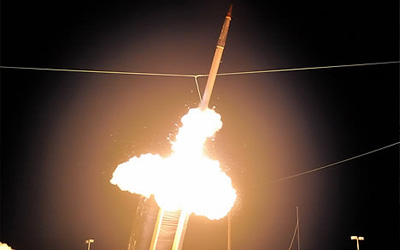- California Assembly OKs highest minimum wage in nation
- S. Korea unveils first graphic cigarette warnings
- US joins with South Korea, Japan in bid to deter North Korea
- LPGA golfer Chun In-gee finally back in action
- S. Korea won’t be top seed in final World Cup qualification round
- US men’s soccer misses 2nd straight Olympics
- US back on track in qualifying with 4-0 win over Guatemala
- High-intensity workout injuries spawn cottage industry
- CDC expands range of Zika mosquitoes into parts of Northeast
- Who knew? ‘The Walking Dead’ is helping families connect
China offers economic incentives in exchange for S. Korea rejecting THAAD: report
WASHINGTON (Yonhap) — China has promised increased trade and business with South Korea in exchange for Seoul rejecting a U.S. bid to deploy the THAAD missile defense system to the country, an American news outlet reported Monday.
Chinese President Xi Jinping “directly appealed” to South Korean President Park Geun-hye not to allow the U.S. to go ahead with plans to deploy the Terminal High-Altitude Area Defense (THAAD), the Washington Free Beacon reported, citing current and former U.S. officials.
In July, Xi visited Seoul and held summit talks with Park.
The report did not elaborate on the details of the trade and financial incentives China is offering.
It cited an unidentified U.S. official as saying China wants to use South Korea to weaken and erode three-way defense cooperation between the U.S., South Korea and Japan in a bid for Beijing to gradually replace the U.S. as the most significant Asia-Pacific power.
The official also said China’s strategy includes stoking anti-Japan sentiment over Tokyo’s wartime past in an effort to prevent South Korea from focusing on more imminent and dangerous threats posed by China and North Korea.
“Unfortunately, the South Korean leadership seems to have easily fallen for Beijing’s calculations,” the official was quoted as saying.
The possibility of the U.S. deploying a THAAD battery to South Korea has been the focus of attention because such a deployment is seen by critics as part of a broader U.S. attempt to get the Asian ally to join its missile defense system.
Opponents also say a THAAD deployment in South Korea would inflame tensions with China and Russia as they see the move as a threat to their security interests. The two countries have repeatedly expressed concern and opposition to such a possibility in recent months.
Meanwhile, China is also pressuring South Korea to allow Huawei Technologies to bid on telecommunications infrastructure projects in South Korea, the report said, adding that the company has been linked by the U.S. government to espionage plots conducted through its network equipment.
The U.S. military is concerned that allowing Huawei into communications networks will increase the vulnerability of the country to cyber-attacks in a crisis or conflict, the report said.

















kelly
November 24, 2017 at 11:15 AM
Very nice and always successful.
This is a very good article.
I’m waiting for you the other article.
togel online